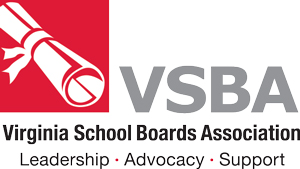Trust – Communication – Understanding
Samantha Bosserman, deputy executive director
School board members are seen as leaders and role models in our local communities. Consistently, board members are criticized and critiqued on board behaviors and responses to certain situations- and rightfully so, you are now public figures. Nothing prepares you for serving on a school board like actually serving as a member of the board, but there are some tools that not only new school board members should be prepared with, but veteran board members as well- to help your new team form and grow into a cohesive governance team. These tools are trust, communication, and understanding.
Trust forms the foundation on how successful governance teams operate. It is easy to say that school board members should trust one another, but in action, it is much more difficult. You will have members on your school board that look at trust from different lenses. One person may automatically trust until proven otherwise, while someone else may not trust until trust is earned. Neither of these is wrong or right, they are just different, and board members should be aware of the possibility that someone may view trust a bit differently than they do. Trust should be something that extends beyond the boardroom. While it is important for the board to trust one another, it is also important for the superintendent to trust the board, the board to trust the superintendent, and the community to trust the school governance team as a whole. How do you start to build trust on a governance team? Through communication and understanding.
You often hear the word “transparency” used among board members or in the community. What exactly does transparency mean? To the community it may mean that your meetings are noticed correctly, recordings of meetings are available online, or that the board is accessible to the community. While transparency between board members typically coincides with trust and communication. I have heard of board members being accused of not being transparent, when really the challenge was that they were not being communicative. Is there a perception that decisions are being made between a small group of the board, or that one board member has a stronger relationship with another? The best way to clear up a perception if it is not true, is to talk about it.
Communication is a skill that should be practiced daily. Open, honest and frequent communication ensures that all members of the team are informed and engaged in the decision-making process and the work of the board. When you find that there has been a breakdown in communication it is important to admit when communication could have been stronger. Do not be afraid to pick up the phone and have a conversation with someone whom you feel there may be a misunderstanding. Words can be misinterpreted via text or email that perhaps a quick phone conversation can help clear up any misunderstanding. And do not forget, communication goes both ways! If you feel that your relationship with one board member is not as strong as with another, set up a time to meet to get to know each other. If someone said something at a board meeting that caused you to question their motive or to begin to tell yourself a story on why they may have responded the way they did, call them and ask their intentions. On the flip side, if you feel that something you said did not come across the way you intended, reach out to clarify your intentions.
A great way to build trust and improve communication is to build an understanding of your team and the members of your team. It is important to take time to learn the different values, perspectives and priorities of your team so you can understand where they are coming from. Learning about the human sitting next to you helps when board discussions may be heated or divided. This is not saying that you need to always agree, but that you should create a sense of understanding of where someone is coming from when they make statements or vote a certain way. How do you build a greater understanding of your teammates? You guessed it, communication!
Be intentional in the conversations you have as a board around trust, communication and understanding. Work as a team to share thoughts on trust, communication preferences, and to learn more about one another. Do not be afraid to respectfully discuss when trust may have been broken or when communication was lacking. Each of these tools takes time and practice, but with a strong dedication towards the work of the team and the work of the board, they are tools that sharpened and used to build a stronger team.
